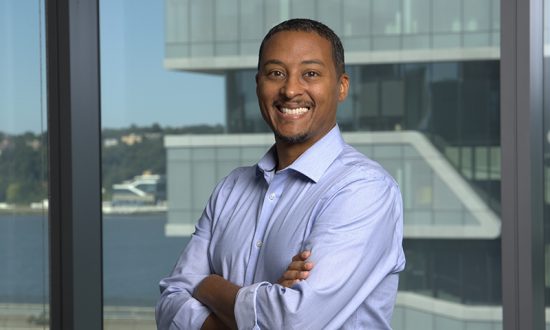A native of Harlem, Charon Darris is the Executive Director of Individual Giving for Columbia Business School, responsible for the School’s annual fund, managing relationships of gifts up to $250,000, solicitation communications, and fundraising for alumni affinity programs. He holds a BA from Morehouse College, an MBA from Columbia Business School, and an MPA from the Harvard Kennedy School. In addition, he has amassed a wealth of for-profit and non-profit leadership experiences across a 25-year career, specializing in turnarounds, fundraising, and strategic planning.
The first 15 years of his professional career were spent in financial services and consulting, where Charon was promoted several times, rising from analyst to an exceptional, top ranking business development officer. Mr. Darris was directly responsible for the success of business development teams at Bank of America and M&T Bank in New York City. At M&T Bank, he was recognized with the President’s Club Award, highlighting his effectiveness as the number 1 ranked business banking relationship manager for the entire bank, surpassing over 200 of his peers, and exceeding his annual revenue goals by over 350%.
In the summer of 2014, Mr. Darris moved from New York City to Oakland to lead the turnaround of a local non-profit, Oakland Technology Exchange West. Within 12 months, Mr. Darris secured over $2,000,000 in funding, expanded the organization’s services to two additional cities, and in his final months, smoothly transitioned the founder into retirement while finding and onboarding a dynamic leader to continue the work he had begun.
1. Why did you choose to go into the industry of fundraising and management?
From my earliest years, my parents instilled in me the importance of education. My mother was a civil servant for the City of New York and my father was a yellow cab driver. They made great financial sacrifices to provide me access to good, independent middle and high schools at a time when public education in New York was not ideal for preparation for college. I see my work as a way of honoring them as well as helping others.
I began my career in the financial services industry in 1998. Over the course of a decade, I advanced from an analyst to a vice president, managing relationships with CEOs and CFOs of companies with sales up to $50 million. At the same time, I volunteered for education and youth leadership non-profits helping them with organizational strategy and fundraising. Eventually, I came to a point where I wanted my volunteer life to become my full-time career.
In 2011, while a vice president at M&T Bank, I began a 24 month executive MBA program at Columbia Business School, focusing on non-profit management. When I completed that program in 2013, I followed it up with an additional 10 month masters program at the Harvard Kennedy School, focusing on education policy. Since 2014, I have worked full-time in the non-profit field; though, I occasionally provide pro bono consulting to small MWBEs.
2. Tell us about the moment you realized your calling to your profession.
During the spring of 2013, I was in a team meeting with approximately 10 peers from across the metro New York region. We were discussing rising inflation and my colleagues voiced their concern that it could cause a collapse of our business, driving away customers. Meanwhile, I reflected on my volunteer work, thinking about the students from underserved communities that I was helping gain access to college and create long-term economic mobility. The rising interest rates didn’t feel important to me in comparison. That moment catalyzed my decision.
3. Can you tell us about some of the causes you support? Why are they important to you?
I am most passionate about youth empowerment and economic mobility. Many of our student-led initiatives at the Tamer Center for Social Enterprise at Columbia Business School touch on these areas.
Throughout my youth, I was fortunate to have many mentors and advisors who laid the groundwork for my personal and professional growth. I support all my alma maters as well as various other organizations in those spaces.
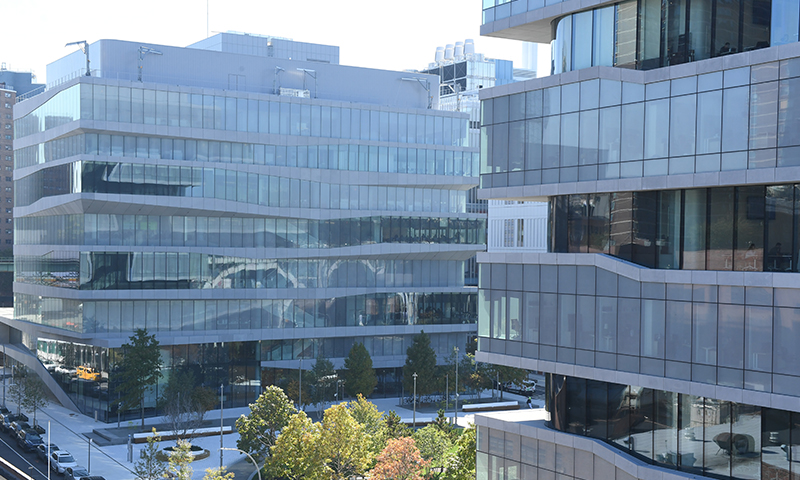
4. As a person with over 20 years of experience, what has been your biggest achievement professionally?
I am most proud of my time in Oakland, California, when I led the turnaround and scaling of the digital divide organization that today is known as Tech Exchange. I joined them in the summer of 2014, when the founder was transitioning out due to a health issue. I helped them secure a $2 million grant that doubled their budget and I led their search and onboarding for a successor Executive Director.
Since then, Tech Exchange has continued to expand their work, serving thousands of families across the Bay Area.
5. Learning is a lifelong process. What is something you learned in your career that changed your life forever?
One of the most important traits that I learned early from a few influential managers is the importance of keeping your word to direct reports: do what you say you will do and do it when you say you will do it. This applies to managing projects, setting expectations for staff, and stewardship of donors.
6. Give a glimpse of your college life. What were the topics and activities that excited you as a student?
In order to attend my first choice college, Morehouse, I had to take out student loans to fund most of my education. As a result of that financial responsibility, I took my college experience extra seriously. It also influenced my decision to major in business administration (I needed a high paying job to repay my student loans 🙂).
I quickly aligned myself with good study groups and sought out help from professors and teachers’ assistants. Occasionally, I worked part- time; and I was a dorm resident assistant my junior year. However, I still had fun. I went to parties and concerts on the weekend, attended political or business leader lectures during the week, and studied abroad through Semester at Sea my senior year.
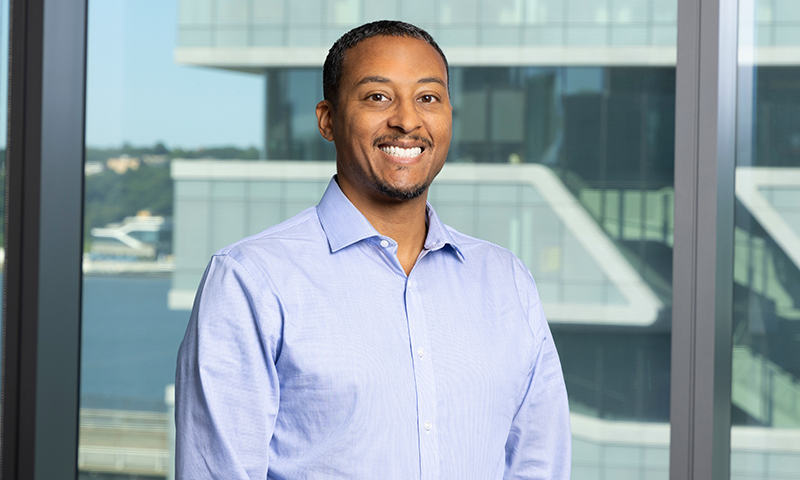
7. As the Executive Director of a prestigious B-School like Columbia Business School, what trends in business are you expecting to see in the coming years?
We are at an exciting inflection point for Columbia Business School. The School has historically been aligned with finance and consulting career paths. While we certainly do continue to have students interested in those fields, our courses have significantly expanded to meet the evolving needs of the global marketplace; 40% of our current curriculum was established in the last four years. In particular, we have advanced our courses of study in areas such as digital transformation, climate impact, healthcare management, entrepreneurship, and social enterprise.
8. How are you equipping students to catch up with the ever-changing trends in Business?
Under the leadership of our Dean, Costis Maglaras, we continue to expand and diversify our faculty to address today and tomorrow’s business needs. In addition, our faculty actively enlist our alumni, many of whom are leaders in their respective industries, to return to the classroom to share real-world insights. As students transition to becoming alumni, we continue to foster their relationships among the larger alumni network through our region clubs and affinity programs.
9. What makes Columbia Business School stand out from other schools? What is one thing students can benefit from on being accepted into the institution?
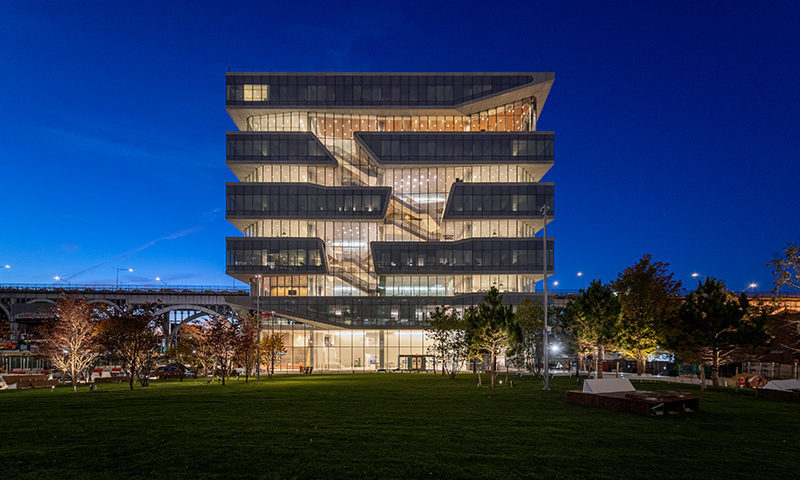
An MBA continues to be the best return on investment for a graduate degree and our peers all do an amazing job of preparing their students for the workplace and leadership. Most programs teach problem solving skills to address dynamic challenges as well as core traditional business competency in areas such as accounting, statistics, and corporate finance.
The past few years have taught us the value of flexible and hybrid work environments. They have also shown us that there is still tremendous value in in-person connection. Columbia Business School is fortunate to be located in the world’s city, New York, home to the headquarters or a regional office of every major company in the world and countless start-ups and mid-sized companies that provide domestic and international services.
Our unique advantage is access to these companies and their leaders that are often only a 20-minute subway ride away. Additionally, the 100+ year legacy of our school has positioned accessible alumni in every Fortune 1000 company and field imaginable.
10. What are some common mistakes business owners make in today’s economy? How can they avoid them?
Business challenges are often relative to the size and scope of the business. Small businesses often run the risk of not having enough diverse experience on hand to address new and unforeseen issues. Large corporations with lots of infrastructure and processes in place, often suffer from not being able to pivot fast enough to align with customer or employee needs.
One area in particular that has impacted all businesses in recent years is employee retention. Over 50% of Americans changed jobs within the last 24 months, resulting in explicit and implicit losses of revenue. Now, more than at any time in history, employers need to be attuned to the pulse of their staff, understand how employees are feeling, proactively cultivate healthy work environments, and ensure proper, equitable compensation across the organization.
11. What advice do you have for students who aspire to take up a career in business?
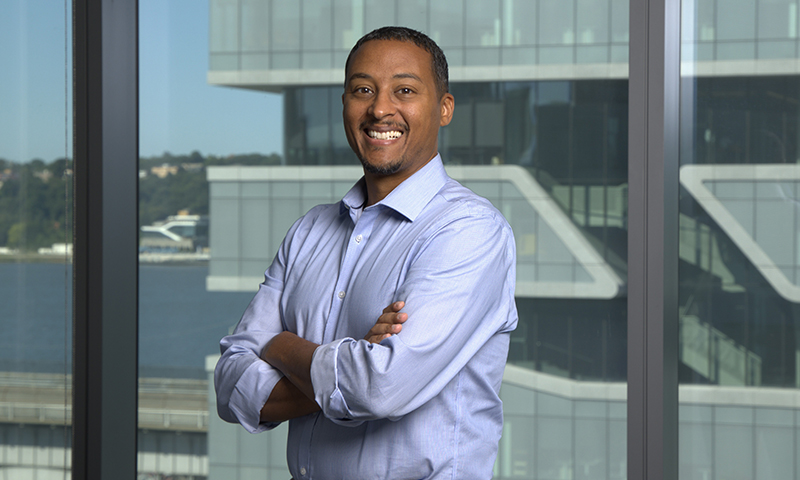
The phrase “a career in business” can be a little misleading as, ultimately, every organization is a business. Some businesses are primarily focused on providing a service or product to produce income for the business owners. Other businesses exist to provide a social service for the greater good of society (i.e. independent schools, local governments, etc.). Culture and process shift depending on the type of organization. The best advice I have for students is to find good mentors and maintain relationships with them over the course of their careers.




